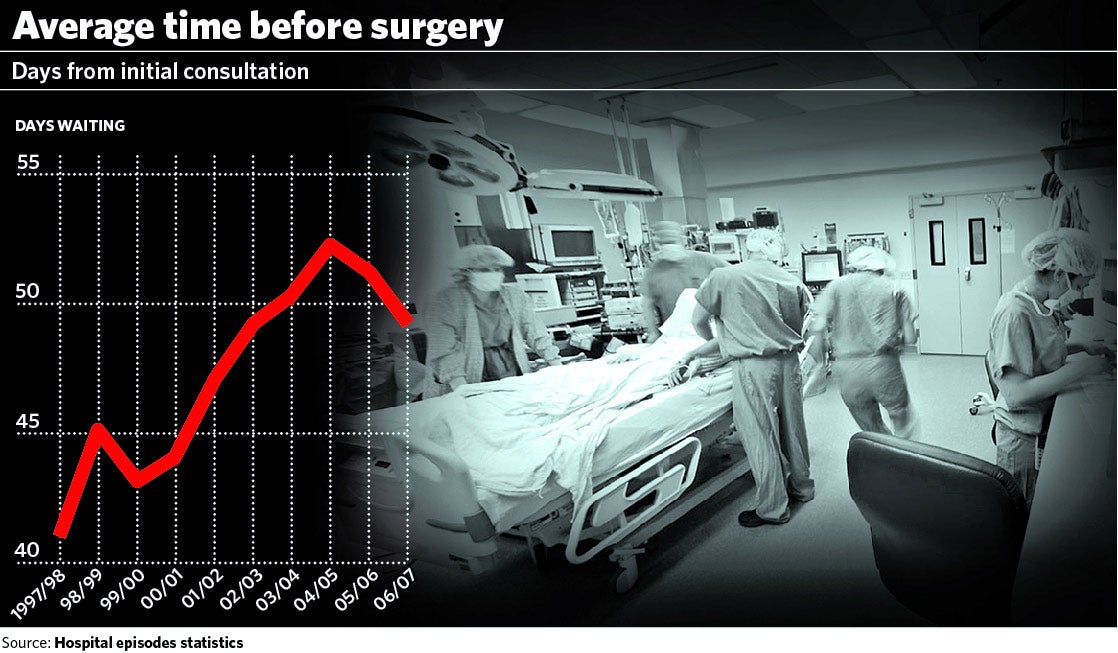NHS treatment waiting times rise under Labour

Your support helps us to tell the story
From reproductive rights to climate change to Big Tech, The Independent is on the ground when the story is developing. Whether it's investigating the financials of Elon Musk's pro-Trump PAC or producing our latest documentary, 'The A Word', which shines a light on the American women fighting for reproductive rights, we know how important it is to parse out the facts from the messaging.
At such a critical moment in US history, we need reporters on the ground. Your donation allows us to keep sending journalists to speak to both sides of the story.
The Independent is trusted by Americans across the entire political spectrum. And unlike many other quality news outlets, we choose not to lock Americans out of our reporting and analysis with paywalls. We believe quality journalism should be available to everyone, paid for by those who can afford it.
Your support makes all the difference.Patients are waiting longer on average for NHS treatment than they were in 1997, despite the billions of pounds poured into the health service since Labour came to power.
The NHS figures come as an embarrassing setback for the Government, which has claimed success in reducing very long waits for patients by pumping more money into the NHS and hiring more doctors and nurses.
The Government has succeeded in ending waiting times of 18 months, but overall the average time patients wait for an operation has risen from 41 days in 1997-98 to 49 days last year. Ministerial sources said the figures were misleading, but they threaten to undermine plans by Gordon Brown for a fresh summer offensive on the health service.
The Prime Minister will lead a campaign for a more personalised NHS with GPs offering more evening and weekend surgery opening hours and pharmacies offering a wider range of services. It will follow the publication of a report on the reform of primary care by the Health minister Lord Darzi.
Doctors' leaders claimed the rise in average waiting times was another example of healthcare being distorted by government targets. "All that has happened is that the Government has put an end to the really long waits and the really short waits," said Jonathan Fielden, chairman of the British Medical Association's consultants committee. "Doctors have been stopped from using their clinical judgement and pushing people through the system when they need to be. Of course, it is good that the really long waits have gone, but it is wrong to say that all patient care has improved because of shorter waits."
The shadow Health Secretary Andrew Lansley said: "This shows how the bigger picture gets neglected in order to meet the Government's top-down targets. In meeting one target, another patient misses out." The Liberal Democrat health spokesman Norman Lamb added: "These figures massively undermine Labour's claims to have made a substantial difference to NHS waiting times."
The Health minister Ben Bradshaw said: "Our waiting-time targets were specifically designed to eradicate unacceptably long waits. Tackling long waits leads to a short-term increase in the average wait as the backlog is cleared – this can be seen in the data."
Join our commenting forum
Join thought-provoking conversations, follow other Independent readers and see their replies
Comments